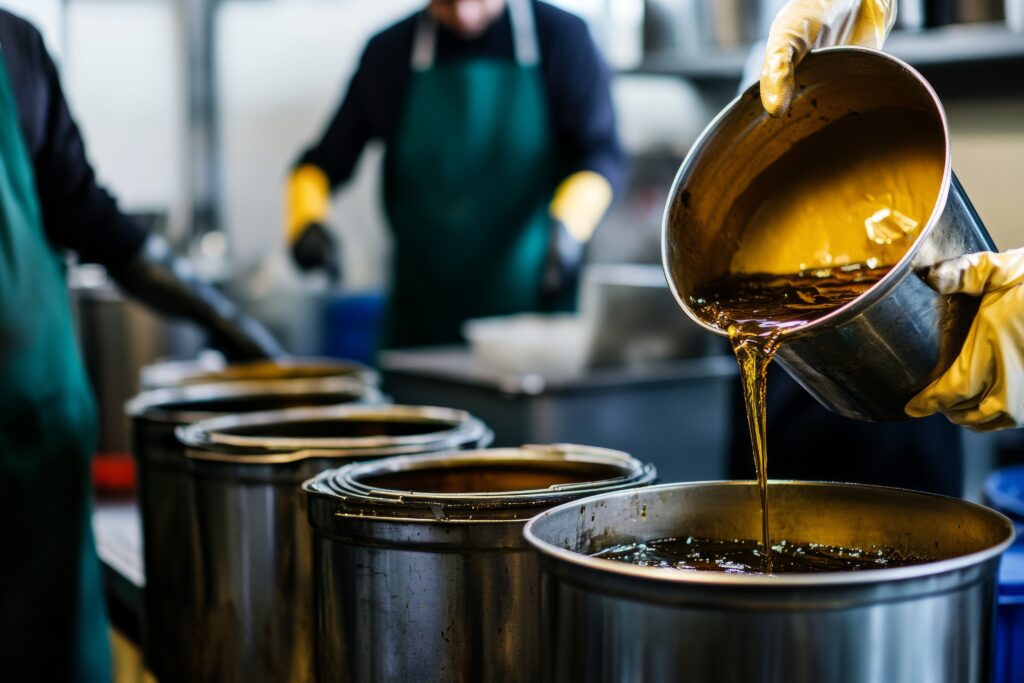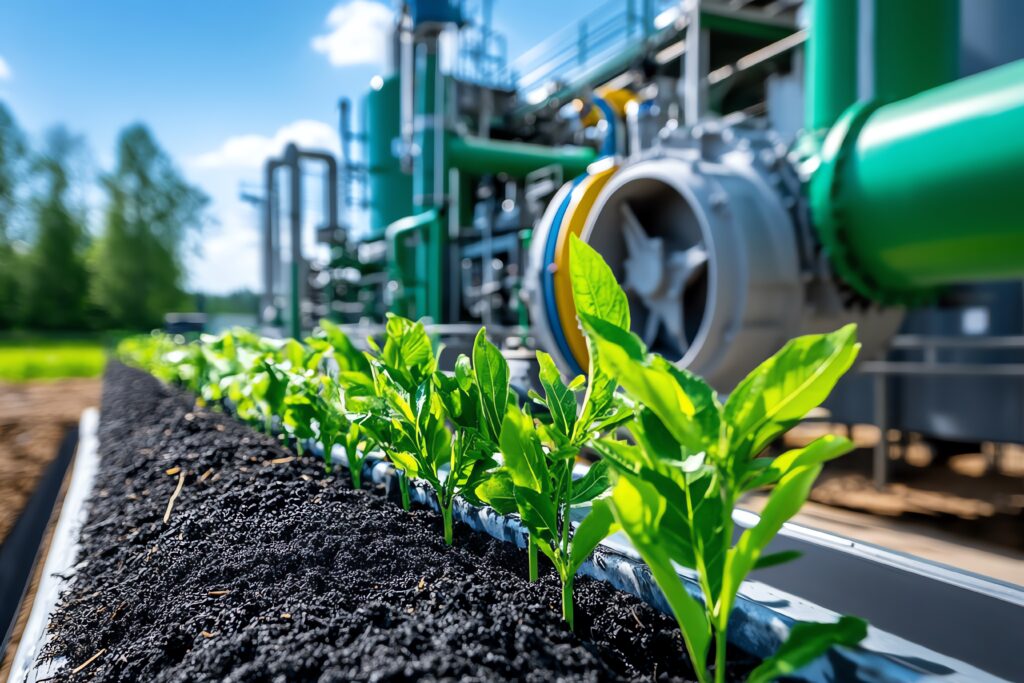Products
High-quality oils and fats – sustainable, efficient and tailored to your industry
Used Cooking Oil (UCO)
Vegetable Oils and Fats
Animal Oils and Fats
Glycerin
Acid Oils/Free Fatty Acids (FFA)
Waste Oils and Residual Oils

Used Cooking Oil (UCO)
Turn waste into energy – discover how UCO powers sustainable fuels with over 90% CO₂ reduction.
Used cooking oil (UCO) is one of the most established waste-based feedstocks for biofuel production. Collected from restaurants, food processors and households, UCO is classified as a waste material and is therefore considered a zero-CO₂ raw material. Within the circular economy, UCO is converted into biodiesel, renewable diesel (HVO) and biogas, achieving CO₂ reduction values of over 90%. By sourcing and trading UCO, we help our partners reduce emissions while transforming waste into a valuable contribution to the renewable energy system.

Vegetable Oils and Fats
Certified and sustainable – explore versatile vegetable oils driving renewable energy forward.
Vegetable oils and fats, derived from oilseeds such as rapeseed, soybean and sunflower, are versatile sustainable feedstocks for biofuels. Depending on their fatty acid profile, they are used in the production of biodiesel, HVO and biogas. Our portfolio focuses on sourcing certified and sustainable vegetable oils, in raw or refined form, ensuring that they are integrated into the bioenergy value chain without competing with food resources. With their high efficiency and availability, vegetable oils remain a key driver for renewable energy and decarbonization.

Animal Oils and Fats
From by-product to clean energy – animal fats as powerful feedstocks for low-carbon fuels.
Animal oils and fats, such as tallow, lard and fish oils, are residual by-products from the meat and fish processing industries. They are highly suitable for the production of biodiesel, renewable diesel (HVO) and biogas, offering a waste-based alternative to virgin vegetable oils. Due to their higher saturated fatty acid content, animal fats are particularly valuable for HVO production. By integrating these sustainable feedstocks into the energy sector, we support the transition to low-carbon fuels while ensuring the efficient use of resources within the circular economy.

Glycerin
Transforming residual streams into renewable energy – discover the versatility of glycerin.
Glycerin is a by-product of biodiesel production and is also obtained from oleochemical and soap industries. Available in crude, technical or refined grades, glycerin is a versatile raw material within the bioenergy sector. Crude glycerin is widely used as a feedstock for biogas production, helping transform residual streams into renewable energy. By trading glycerin, we ensure that this sustainable by-product is reintegrated into the energy cycle, supporting both resource efficiency and the development of circular bioeconomy systems.

Acid Oils / Free Fatty Acids
Cost-efficient and sustainable – acid oils and FFAs enable flexible, low-carbon energy solutions.
Acid oils and free fatty acids (FFA) arise as by-products during the refining of vegetable and animal fats as well as through hydrolysis processes. They represent a cost-effective alternative feedstock for biodiesel and biogas production, offering producers flexibility in their renewable energy supply chains. With their high FFA content, these raw materials are especially suited for waste-based biofuel applications, where sustainability and carbon reduction are essential. By sourcing acid oils and FFAs, we support the circular economy while enabling low-carbon energy solutions.

Waste Oils and Residual Oils
Recycling industrial residues into valuable energy sources – waste oils for a circular future.
Waste oils and residual oils form a diverse group of industrial by-products from food processing, agriculture and other industries. Containing mixtures of triglycerides, FFAs, water and impurities, these residues are upgraded into valuable feedstocks for biodiesel and biogas production. By collecting and trading waste-based oils, we provide sustainable raw material solutions to the biofuel sector, ensuring that valuable resources are recycled within the circular economy rather than discarded. These flexible feedstocks contribute to the growth of renewable energy and the reduction of CO₂ emissions.

